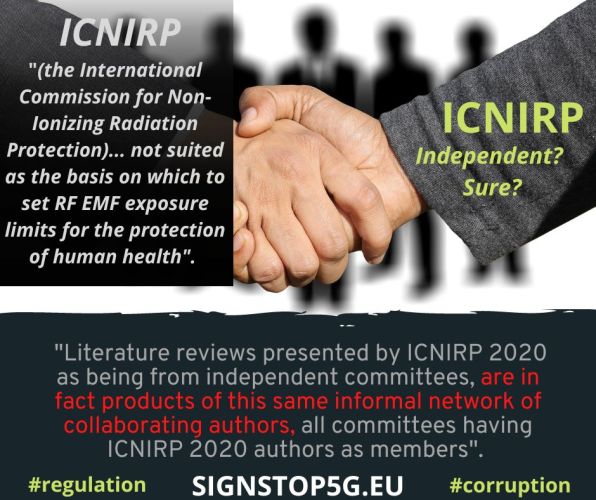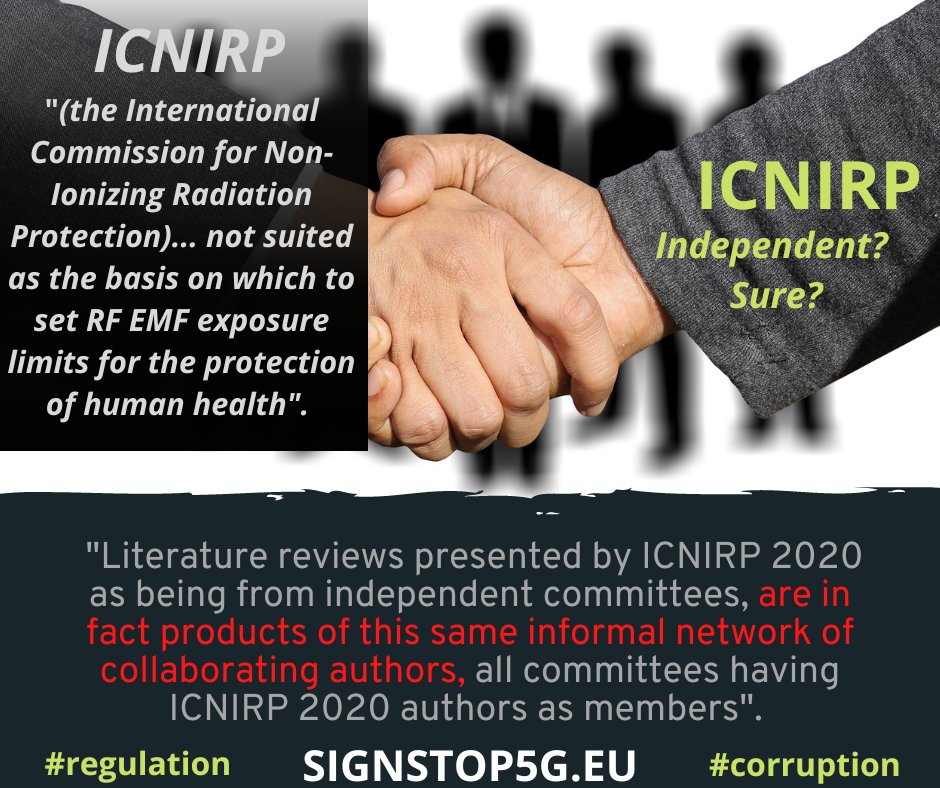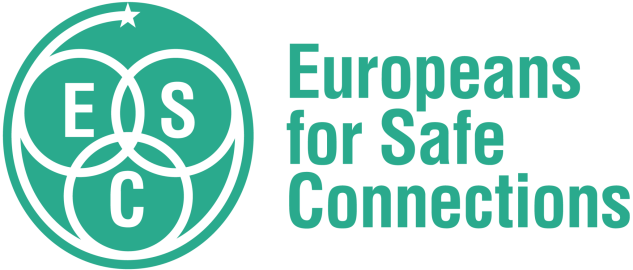
Self-referencing authorship behind the ICNIRP 2020 radiation exposure guidelines
Europeans for Safe Connections – the initiator of the European Citizens’ Initiative (ECI) – Stop 5G – Stay Connected but Protected – draws attention to the recently published research by Nordhagen and Flydal. It finds that the latest by ICNIRP recommended limits to protect against radiation from wireless communication do not meet the basic requirements of scientific quality.
In 2020 ICNIRP – The International Commission for Non-Ionising Radiation Protection – published a new set of guidelines to limit exposure to electromagnetic fields. European governments, like many other countries, rely entirely on ICNIRP and base their radiation protection laws solely on these guidelines. But are they right in doing so? Is ICNIRP the right institution to assess health effects from radiation?
ICNIRP is a small, privately established group with non-transparent selected members. It has 14 scientists, including only one medically qualified person with no expertise in wireless radiation. ICNIRP holds the view that only thermal effects could be harmful. This position is contrary to most research findings. For example, the Bioinitiative Report from May 2022 concludes that 82% of over 2000 studies report other health effects than thermal effects from exposure to low-intensity electromagnetic fields.
Since ICNIRP claims that their view on effects of radiation on health is in line with current scientific understanding, one would expect a solid foundation for their position, one with sound research according to pure principles.
But as Nordhagen and Flydal show, the new guideline is based nearly solely on scientific reports in which ICNIRP people were involved in and in practice all the supporting literature referred to, comes from a network of co-authors with only 17 researchers at its core, most of them associated with ICNIRP. This unacceptable self-referential authorship can certainly not deliver a good basis governments can rely on.
It is not the first time that questions are being raised openly about the functioning of ICNIRP. For years civilians, scientists and journalists have been raising their voices about the adverse health effects of wireless communication and the role of ICNIRP.
To name a few: The 5G appeal of scientists and doctors, the articles on 5G of Investigate Europe, the scientific publications Planetary electromagnetic pollution: it is time to assess its impact and Health risks from radiofrequency radiation, including 5G, should be assessed by experts with no conflicts of interest. Also Buchner and Rivasi, two members of the European Parliament, published a report about ICNIRP not being scientifically neutral and independent from the telecom industry.
Clearly, not only ICNIRP is to blame. Also the European Commission and the national governments are failing in their duty to protect the public. Until now they have ignored all signals from society. Somehow, they do not see the risks of a large-scale 5G rollout and of the full dependence on an uncontrolled private institute.
This is why Europeans for Safe Connections, in their ECI (see www.SignStop5G.eu), calls on the EU to protect all life from the harmful effects from wireless radiation and to ensure that exposure guidelines are drawn up by totally independent scientists with the right biomedical and medical expertise.
Corriëlle van Vuuren and Pernille Schriver
“Stop 5G – Stay Connected but Protected”
www.SignStop5G.eu

Our press release registered in official offices
Dear Committee
You hereby receive a press release regarding the scientific article by Nordhagen and Flydal. In their paper, they show that the new guideline on exposure to electromagnetic fields is based almost entirely on scientific reports contributed by the ICNIRP people themselves. This one-sidedness is an unacceptable practice.
Please send me information where in the systems this press release is being journalized.
Yours sincerely …..
- The Netherlands Commission on Public Health, Welfare and Sport no answer yet



